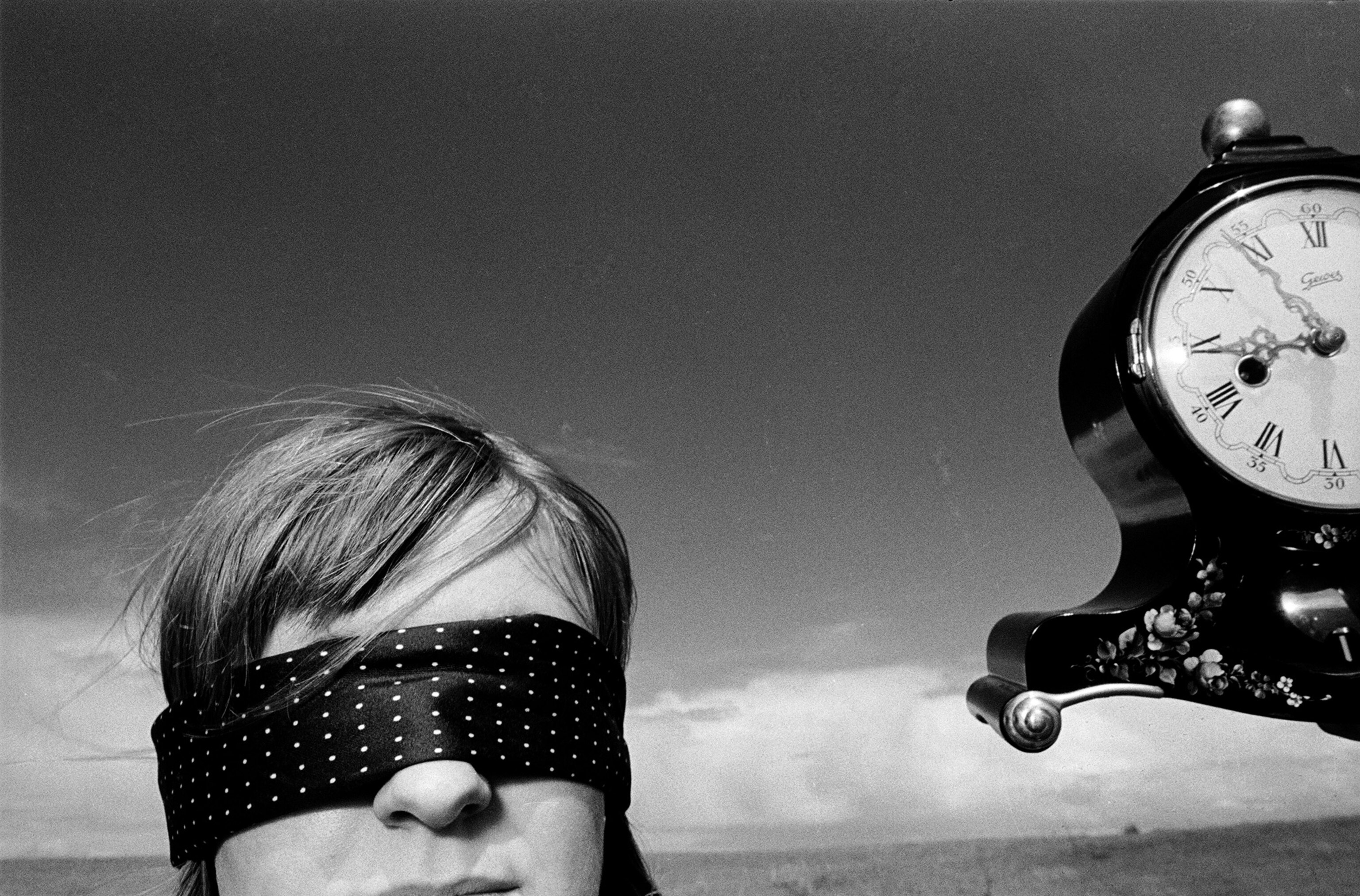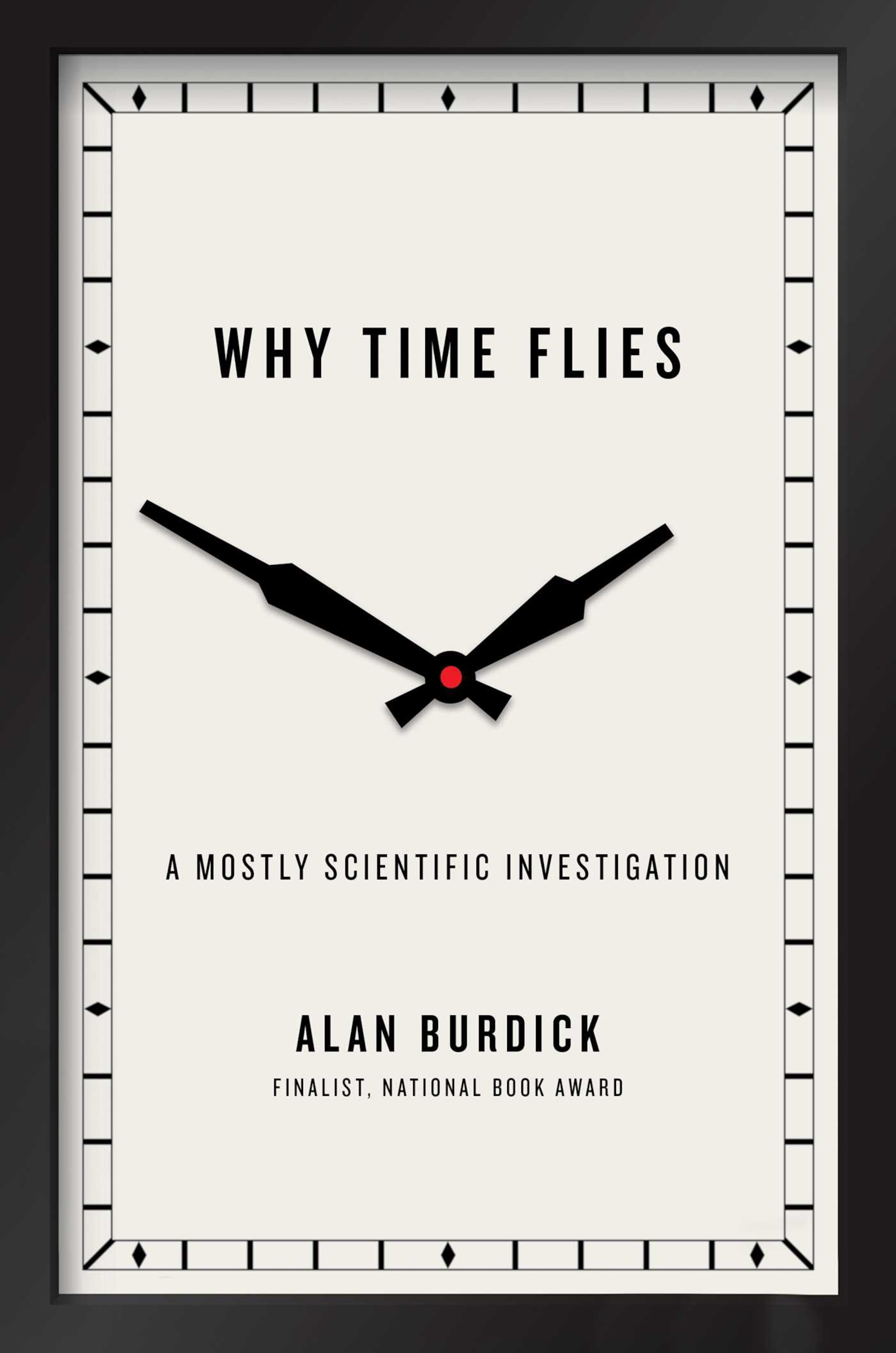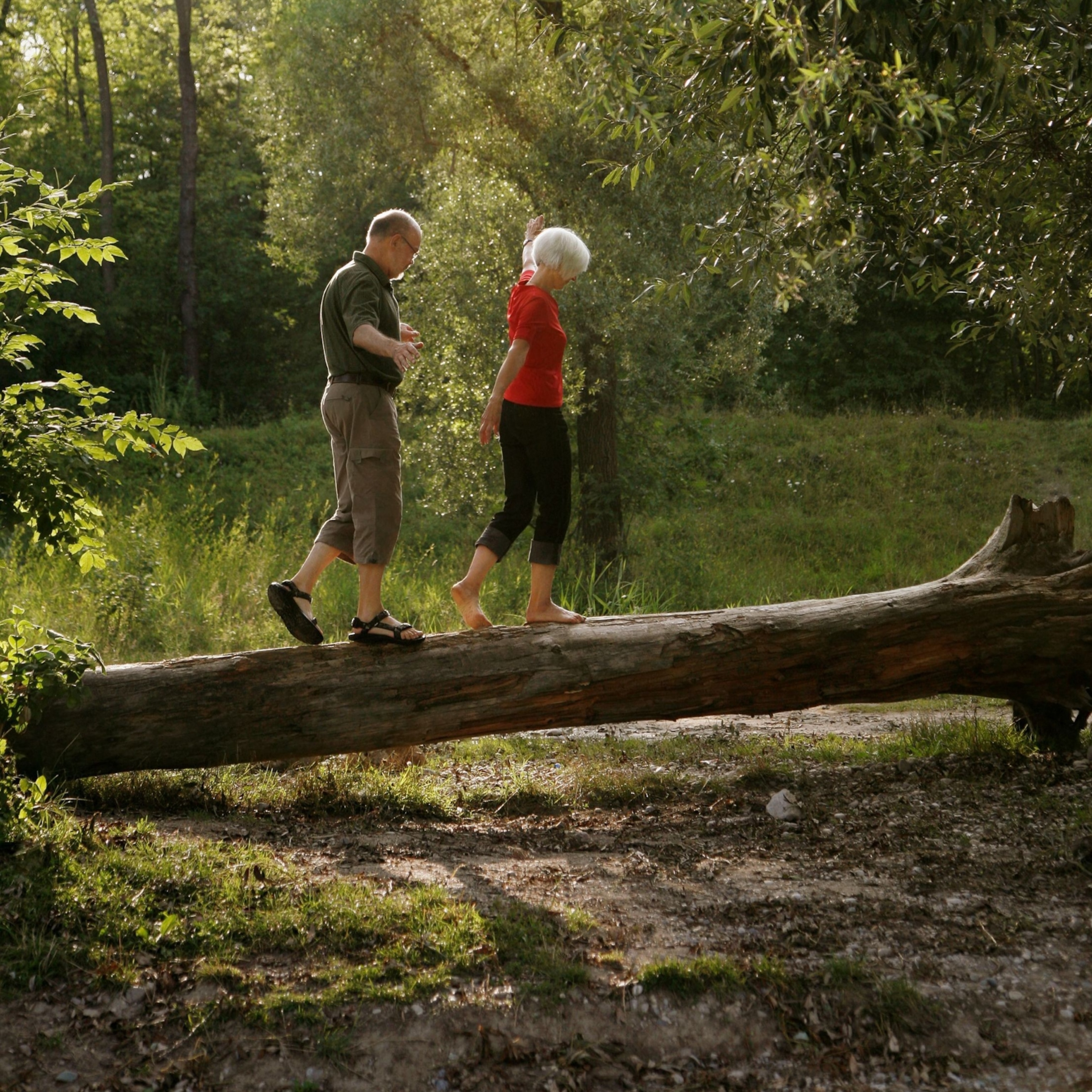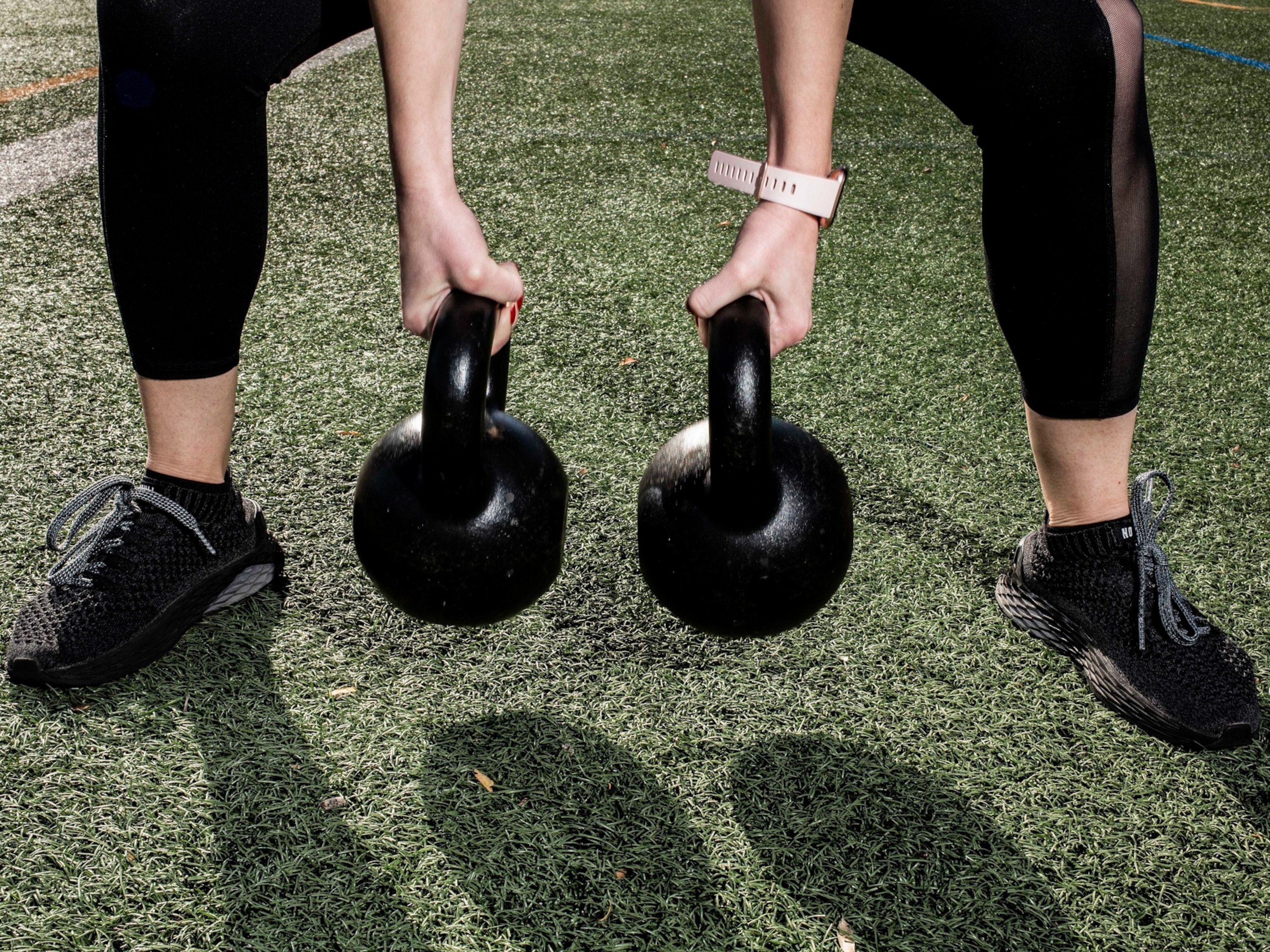
How Time Rules Your Body—and Your Social Life
We have clocks in our bodies down to the cellular level.
We can’t smell it, we can’t taste it, we can’t hear it or touch it, but time is with us every second of our lives. And for thousands of years, philosophers and psychologists, from St. Augustine to William James, have pondered its meaning and how we perceive it. For his book Why Time Flies: A Mostly Scientific Investigation, Alan Burdick, who refused to wear a watch for much of his life, set off on a journey in search of time, which took him from a research station in the Arctic to the office of Coordinated Universal Time in Paris. [See an ancient portable sundial shaped like a ham.]
Speaking from his home in Hastings-on-Hudson, New York, Burdick explains how having twins changed his ideas about time, why as far back as the Romans people have complained about being slaves to time, and how new discoveries in neuroscience show that our bodies are filled with clocks.

It’s ironic that, for many years, the author of a book about time refused to wear a watch. Why was that? And how did your perception of time change after you finally relented?
[Laughs] I started this book some time ago, when I was rather a different person. I really was of the mind that if I could take the time off of me physically, that I somehow made it go away. Part of it was that I am prone to think about mortality. Having a watch on me felt like being a grown up! It meant plugging into, and being subject to, all the things that time requires, like being on time, and it made me feel like my day was chopped up into little bits and my watch was going to parse them out to me, like pellets to a rat. And I didn’t want to be a rat. [Laughs]
I used to think that this was a modern outlook but I came across a great quote from a Roman poet, complaining about the sundial and how awful it is that it chops our days up into hours. [Laughs] So my complaint about time is not a particularly new one.
A lot of other things changed, too. In my case, I had a family—two fraternal twin boys, ten years old—and that forced me to be on time and get more things done than I used to be able to. I had to come to peace with it in that regard. Also, the more I learned about my subject, the more I came to appreciate the extent to which time and timing is embedded in every aspect of our social lives. You and I are going to have a conversation on such-and-such date at such-and-such time and, in order to do that, the time on your watch in the U.K. has to exactly match my time in the U.S. That’s all made possible by this incredible process that goes into making universal coordinated time, which involves atomic clocks and this global coordinated operation.
One of the most original ideas in your book is that “time is contagious” and even leads us to feel empathy for one another. Unpack that idea for us.
[Laughs] Yeah, it’s super weird! We can come at it from a bunch of different ways. One is that research has found that when people are in conversation in person, there are all these things we do without even noticing. If we’re having lunch, you and I will unconsciously pick up our forks more or less at the same time. There’s a great study about two people playing the game Whack-A-Mole. Even though they were competing against each other, their movements fell into synch, even at the expense of losing points. They would unconsciously work toward this synchrony. The more affiliated and friendly you are with that other person, the more you are in synch.
If I watch a video of two people talking, I will be able to tell, unconsciously, how friendly they are, based on the extent to which their movements fall into synch with each other. The difference between a fake and real smile is a matter of milliseconds. It’s incredibly important to know the difference, right? And, in order to tell the difference, you need, as a viewer, to have a really sensitive timing mechanism that can parse one from the other. We have these clocks in us, which are operating all the time. It’s a very open question where exactly in the brain they are and how they work. But it’s clear that they’re there and utterly essential to making our social interactions go smoothly.

It’s not just humans, is it? Hummingbirds and other creatures also keep track of time, don’t they?
The cool thing about hummingbirds is that their timing mechanism is super sophisticated. In one experiment, they flew around outdoors to different flowers, which recharge their nectar at different rates. The hummingbirds want to get to the flower when it has maximum nectar, before its competitor does. So it’s got to do this elaborate optimization and algorithm to figure out how to get there often enough to get what it wants, without getting there too soon and wasting time, or getting there too late and being beaten to it.
We all know about circadian rhythms from jet lag. But they are far more complex than that, aren’t they?
Scientists have known about circadian rhythms for a couple of hundred years in plants. But in the last 20 years, the genetic mechanism has become clear in humans. The idea is that each of our cells can essentially tell the time; they have a 24-hour clock, which enables the cell to organize all the things it needs to do, just like you and I. We need to meet at a certain time, or talk at a certain time. Within yourself, your organelles and proteins and genes have stuff to do. It has to happen in a certain order, and that requires a clock. In humans it’s a little over 24 hours long, pretty close to, but not exactly, the length of a day.
All your cells have this clock. Your stomach and liver, all your organs, have a clock. In order to keep those clocks in synch, mammals and we humans have a master clock in our brains that sends out a neuro-chemical signal on a regular basis. Like the conductor of an orchestra, it keeps all of these clocks in time so your body knows that when you eat, 30 minutes later, your liver’s going to jump into action, then your adrenal glands and kidneys are going to do their thing, and your fat cells are going to absorb energy on a certain schedule.
There’s been a lot of research showing that, for night shift workers, truck drivers and other people who work on schedules that don’t match the circadian rhythm, their metabolism is thrown off. Some cancers may even be associated with night shift work or circadian imbalances. Your body is expecting to metabolize food at certain times of the day but if you are living at a different time of day, you’re eating food when your fat cells want to be sleeping.

The most radical experiments on circadian rhythms were carried out by a Frenchman named Michel Siffre. Tell us what he did—and what he discovered.
Michel Siffre is a French cave explorer. In the 1960s, at the height of the space race, scientists were thinking about whether humans could live for a long time in isolation in deep space. Siffre had this idea: What if I go live in this cave for a period of weeks, and monitor my own heart rate and sleep cycle? What does living in isolation away from the sun do to the body? It was clear that humans have circadian cycles and that our body temperatures go up and down on a reliable 24-hour cycle. But Siffre was the first to show that the circadian cycle in humans is not exactly 24 hours long.
He went on to repeat a similar experiment in a cave in Texas. He was down there for about 6 months, all by himself. He could talk to people up on the surface every once in a while by message. But he had no idea what time it was. He all but went nuts from loneliness and sensory deprivation, because his sleep cycle went totally out of whack. There were times when he would sleep for 40 hours straight then be awake for a couple of days in a row, without knowing it. When he finally came out, he thought that he had been called out a month too soon because his count of the days was so far off.
One of the clichés about old age is that time appears to speed up. Why does this happen? And why does time fly when we are having fun?
Two very good but very separate questions! Time speeds up when we’re having fun for reasons that are going to sound circular and even tautological: i.e. when you’re having fun you aren’t looking at the clock or paying attention to the time. By contrast, when you’re bored and have nothing else to do, you’re thinking about the time.
Why does time seem to speed up as we get old? It’s one of the great paradoxes. The funny thing is, in surveys, whether they’re 20, 40, 60 or 80, 85 percent of people in every range say time is speeding up. All indications seem to be that it’s not so much that the time goes by faster, though. My sense of it is that, as you get older, you become more aware of how little time you have, so the time you have feels more precious.
You did lots of hands-on research for the book. What was the most interesting experience? And how did writing this book change your understanding of time? Are you still wearing a watch?
The neatest experience I had was spending two weeks at a biological research station on the north slope of Alaska, just above the Arctic Circle. We were in constant daylight and I’d never experienced anything like that before. It was amazing and unnerving. Like everyone, I am accustomed to thinking of sleep as this demarcation between one day and the next. But when the sun is always up, I might sleep for 8 hours and it would seem like a nap. Two weeks was really one long day. It was deeply disorienting but that’s what I went there to experience.
I had hoped I would meet people who were studying circadian rhythms but none of them were. They were all studying different aspects of ecology and climate change on a much longer time scale than I had gone there to find. It did make me face the profound reality of the kind of long term change that we are now causing on the planet.
The thing that fascinated me most is the idea of time as a social glue, a language, which is fundamental to all of our social interactions. We can’t interact and have social lives without it. What we do as a social species is share time. That’s almost the definition of being a social species. Once I understood that, it suddenly felt more important to wear a watch. And to turn that off began to feel almost anti-social.
Even if I’m lying in bed at night with no clock or watch, I have clocks in every cell. All of those clocks together make a master clock. It’s not like I can get away from time. I might delude myself briefly into thinking so, but I can’t. We are filled with clocks.
This interview was edited for length and clarity.
Simon Worrall curates Book Talk. Follow him on Twitter or at simonworrallauthor.com.








